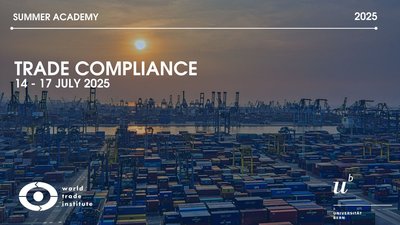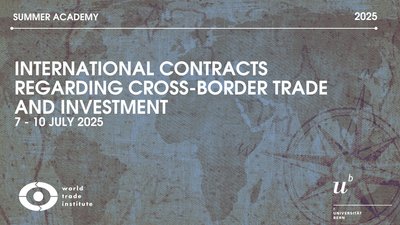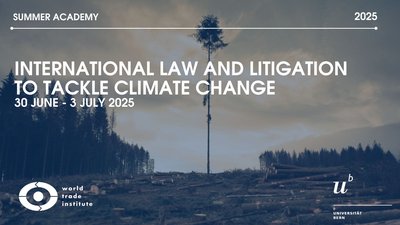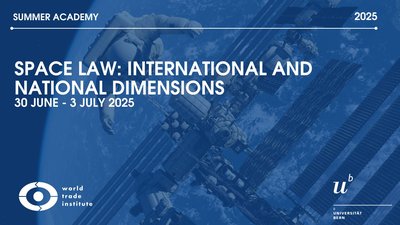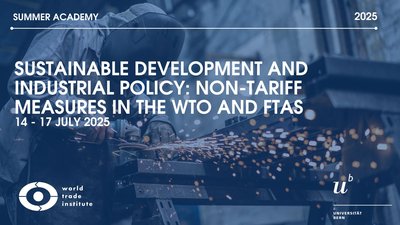30 June - 17 July 2025
NOTE timetables may vary depending on whether the participant takes the assesment.
Course 1 | Econometric of Trade Policy (on-site only)
June 30 – 3 July 2025
Lecturer: Octavio Fernández-Amador
ECTS: 3
Syllabus
Course 2 | Space Law: International and National Dimensions
30 June - 3 July 2025
Lecturers: Merve Erdem Burger, Riccardo Loschi, Ingo Baumann
ECTS: 3
Syllabus
Course 3 | International Law and Litigation to Tackle Climate Change
30 June - 3 July 2025
Lecturers: Nicolas Lockhart, Dominic Coppens, Elena Cima
ECTS: 3
Syllabus
Course 4 | International Contracts Regarding Cross-Border Trade and Investment
7-10 July 2025
Lecturers: Reka Papp, Benjamin Gottlieb
ECTS: 3
Syllabus
Course 5 | Geopolitics and the Securitization of Global Trade
7-10 July 2025
Lecturers: Manfred Elsig, Iryna Bogdanova, Fernando Martin Espejo, Leandro Urbano, Cristian Rodriguez-Chiffelle
ECTS: 3
Syllabus
Course 6 | Introduction to Input-Output and Applied General Equilibrium Models (on-site only)
7-11 July 2025
Lecturer: Patrick Tomberger
ECST: 3
Syllabus
Course 7 | Sustainable Development and Industrial Policy: Non-tariff Measures in the WTO and FTAs
14-17 July 2025
Lecturers: Arthur Appleton, Tetyana Payosava
ECTS: 3
Syllabus
Course 8 | Trade Compliance
14-17 July 2025
Lecturers: Hevin Demir, Philipp Weber-Lortsch
ECTS: 3
Syllabus
Course 9 I General Equilibrium Modelling of Trade Policy (on-site only)
14–17 July 2025
Lecturer: Eddy Bekkers
ECTS: 3
Syllabus




